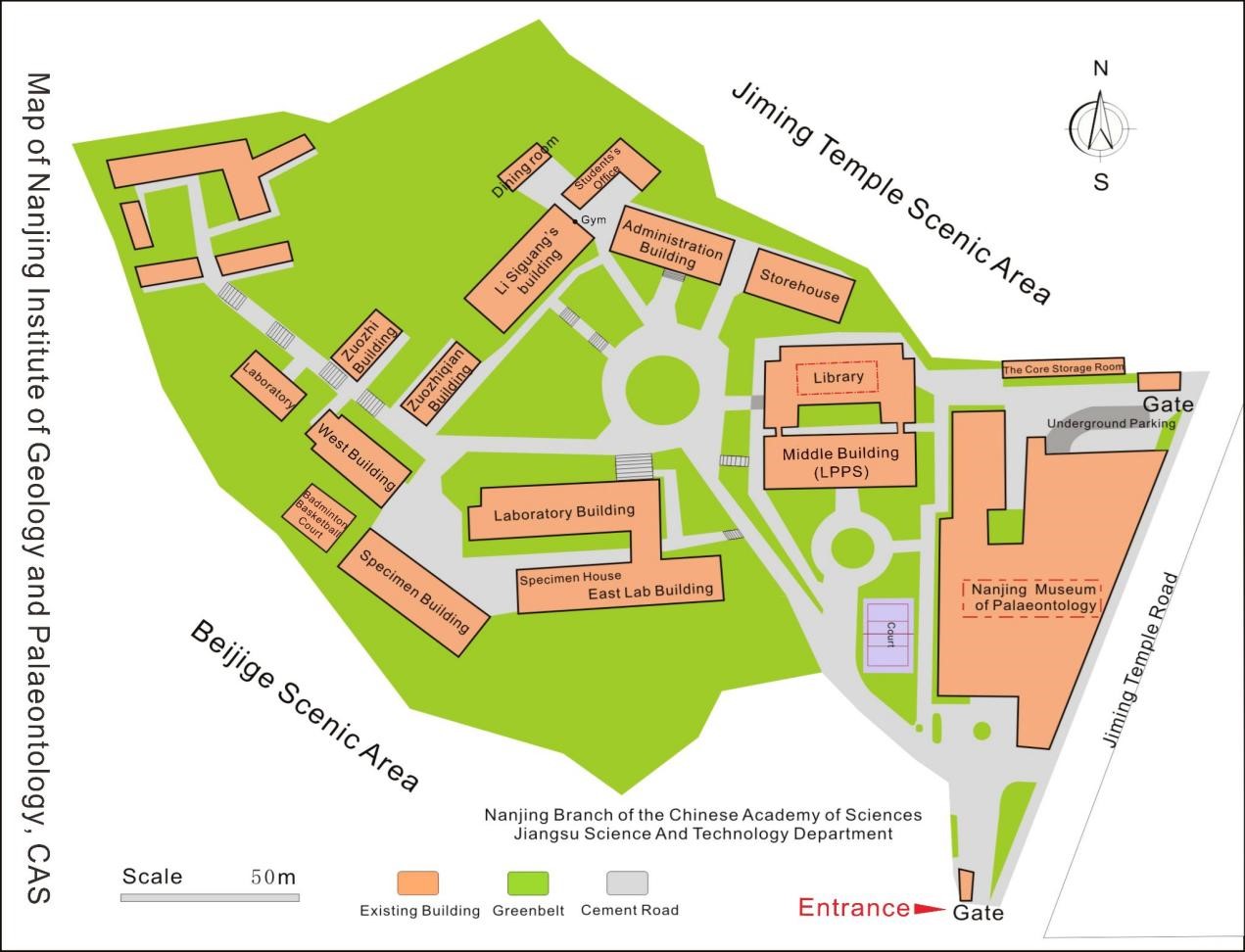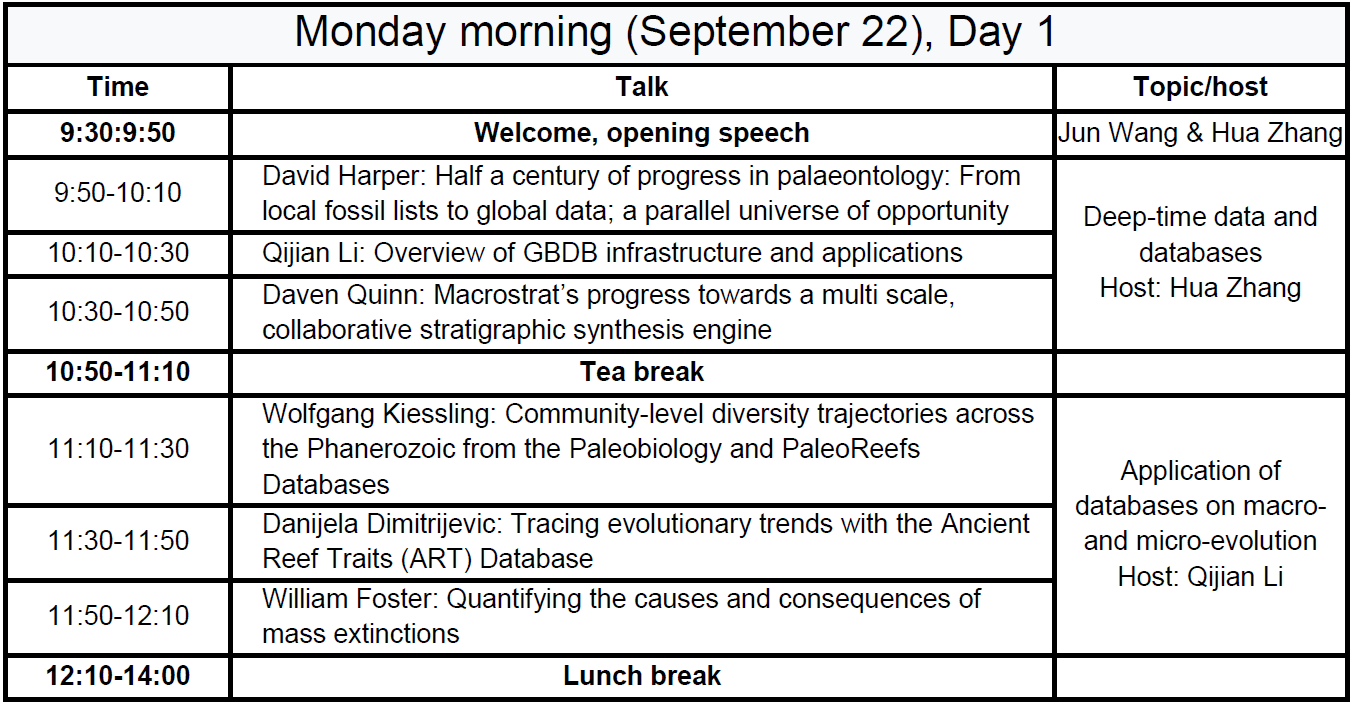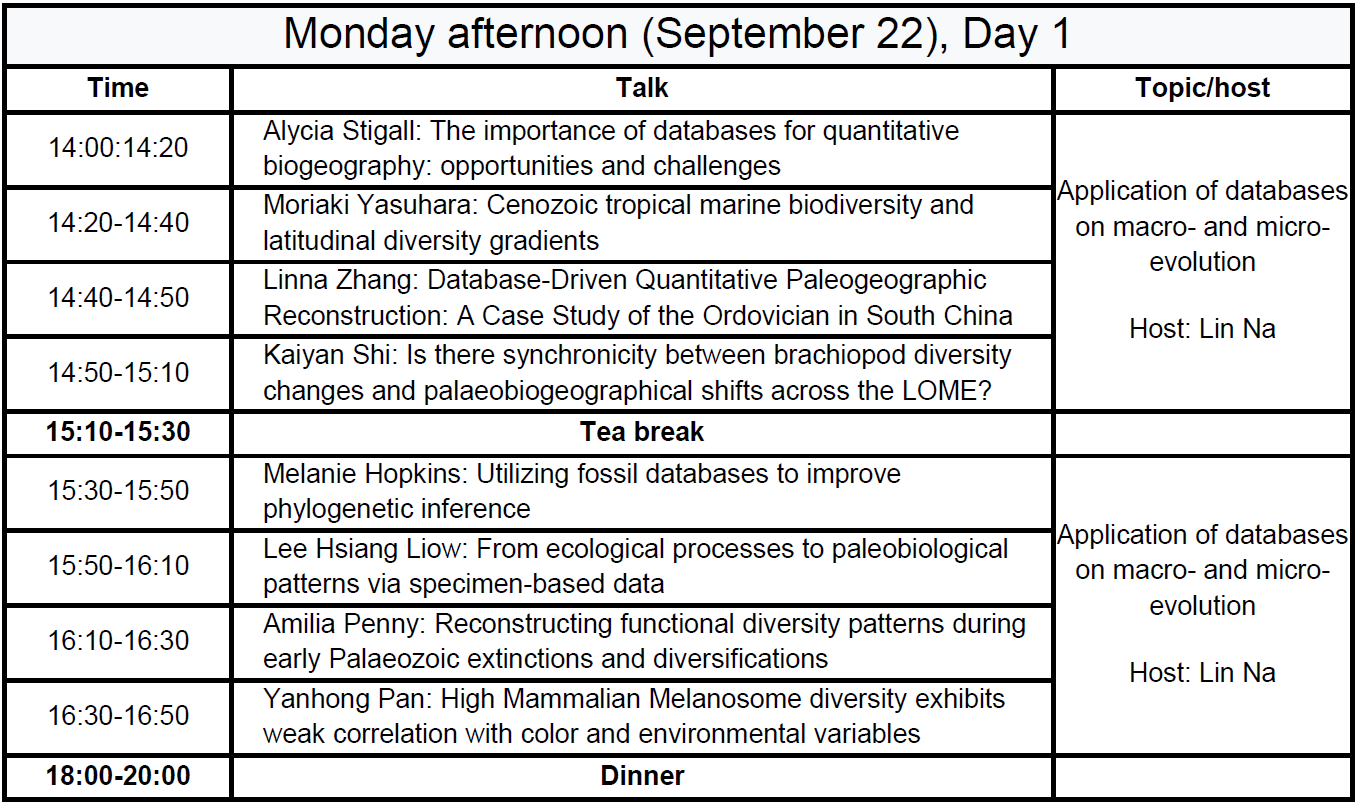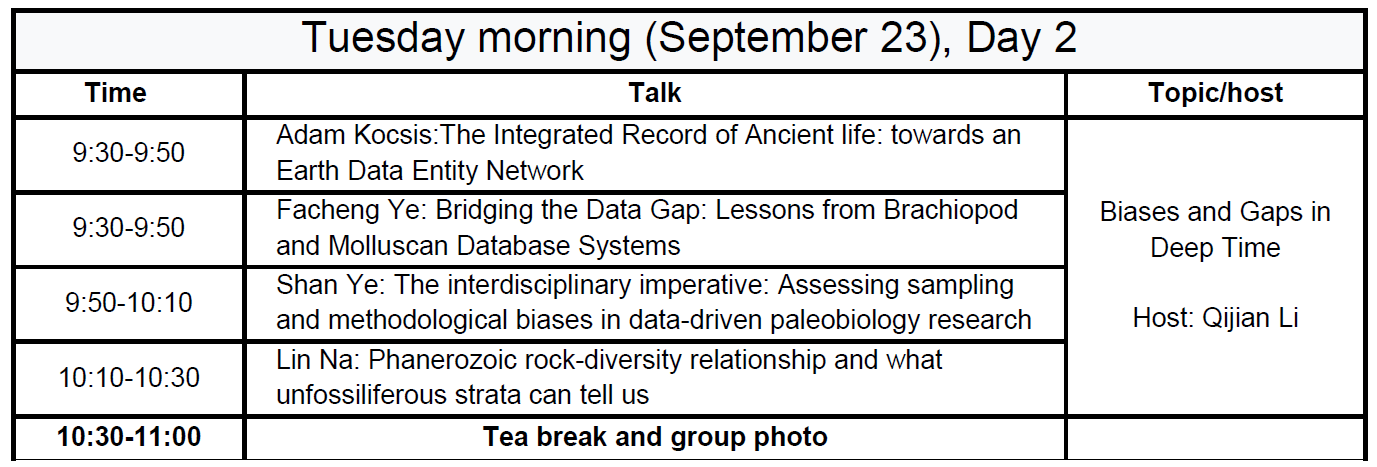Analytical Paleobiology and Applications of the Geobiodiversity Database (GBDB): Facilitating Collaborative Research for Paleontological Databases
Over the past decade, the rapid growth of online paleontological and stratigraphic repositories has transformed our ability to trace Earth’s biodiversity through deep time. Numerous databases have been developed to address key questions in Earth sciences, enhancing our understanding of both the planet’s biological and geological history, as well as its future.
Despite these advances, researchers still face major challenges: harmonizing data across platforms, addressing sampling biases, and applying new analytical techniques to increasingly large and complex datasets.
The Geobiodiversity Database (GBDB), based at the Nanjing Institute of Geology and Palaeontology, Chinese Academy of Sciences (NIGPAS), has been in development for over a decade. Its unique data infrastructure and high-resolution stratigraphic coverage have supported research in macrostratigraphy, biogeography, and lithogeography. With a continuous record of both fossiliferous and unfossiliferous strata, the GBDB has great potential to complement other major databases. Its integration with global platforms is no longer optional but part of a necessary trend in data-driven paleoscience.
To strengthen our engagement with modern analytical paleobiology and to better understand the possibilities of various data platforms, it is essential to stay connected with recent scientific findings, advanced methods, and the strengths and limitations of both GBDB and comparable systems.
We are pleased to announce the upcoming GBDB Workshop, which will serve as a regular platform for data-driven research rooted in the GBDB and its interaction with other international databases. The workshop is supported by the Bureau of International Cooperation, Chinese Academy of Sciences.
This workshop will feature presentations by invited experts as well as researchers from the NIGPAS, on recent advances in database development, fossil data integration, phylogenetic and diversity analyses, and tools for improved data access and visualization. Topics will include macrostratigraphic synthesis, trait-based reconstructions, and quantitative biogeography. These sessions will highlight how collaborative, database-based research is contributing to new insights into the history of life on Earth. We hope the workshop will encourage new perspectives and strengthen cooperation across paleobiological data communities.
Speakers (in alphabetical order)
• Adam Kocsis – University of Erlangen-Nuremberg
• Alycia Stigall – University of Tennessee
• Amelia Penny – University of Edinburgh
• Danijela Dimitrijevic – University of Erlangen-Nuremberg
• Daven Quinn – University of Wisconsin-Madison
• David Harper – Durham University
• Facheng Ye – Stazione zoologica Anton Dohrn di Napoli
• Kaiyan Shi – NIGPAS
• Lee Hsiang Liow – University of Oslo
• Lin Na – NIGPAS
• Linna Zhang – NIGPAS
• Melanie Hopkins – American Museum of Natural History
• Moriaki Yasuhara – University of Hong Kong
• Qijian Li – NIGPAS
• Shan Ye – National Institute of Clean-and-Low-Carbon Energy
• William Foster – University of Hamburg
• Wolfgang Kiessling – University of Erlangen-Nuremberg
• Yanhong Pan – University of Nanjing
Workshop organizing structure
Funding: National Natural Science Foundation of China; Bureau of International Cooperation, Chinese Academy of Sciences; Key Laboratory of Palaeontology and Stratigraphic Applications in Oil and Gas; Big Data Center, Nanjing Institute of Geology and Palaeontology, Chinese Academy of Sciences
Organizer: Nanjing Institute of Geology and Palaeontology, Chinese Academy of Sciences
Convener: Qijian Li (Big Data Center, Nanjing Institute of Geology and Palaeontology, Chinese Academy of Sciences)
Detailed Agenda
Sunday afternoon (September 21), Day 0
Registration (whole afternoon) in the Library (see map below), “icebreaker” meeting with snacks and drinks at Nanjing Museum of Paleontology (18:00-20:00).

Talk sessions (Library Meeting Room)
Each talk is scheduled for 20 minutes, including time for questions and discussion.



Workshop Logistics
Meeting Venue
Nanjing Institute of Geology and Palaeontology, Chinese Academy of Sciences (NIGPAS), Meeting room on the second floor of the Library (see map above).
39 Beijing East Road, Xuanwu District, Nanjing 210008, China
Getting from the airport to NIGPAS
By Taxi:
● Direct taxi to NIGPAS, approx. 60-75 minutes depending on traffic.
● Fare: about 160-170 RMB.
By Metro:
● Take Line S1 (Airport Line) to Nanjing South Railway Station (南京南站).
● Transfer to Line 3 toward Jimingsi station (鸡鸣寺站).
● Exit at Exit No.5.
● Walk about 5 mins to NIGPAS.
Getting from the train station to NIGPAS
By Taxi:
● Direct taxi to NIGPAS, approx. 20-40 minutes depending on traffic and which train station you are from.
● Fare: about 20-30 RMB.
By Metro:
● From either Nanjing South Railway Station or Nanjing Railway Station, take Line 3 toward Jimingsi station (鸡鸣寺站).
● Exit at Exit No.5.
● Walk about 5 mins to NIGPAS.
We welcome all interested students and researchers. Please complete the attendance form and email it to gbdb@nigpas.ac.cn by September 18, 2025, so we can estimate the number of participants.
Contacts:
Qijian Li: +86 025-83288823
Lin Na: +86 025-83282281
Shasha Liu: +86 155-5311-1773
Jiangxue Deng: +86 132-8408-8586
Email: gbdb@nigpas.ac.cn
附件下载:
